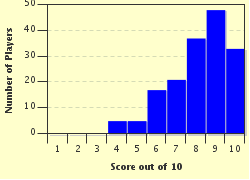Quiz Answer Key and Fun Facts
1. Ernestine was showing Cecil a map drawn on a piece of paper and pointing to a particular section when she stated, "This is where it is located".
Of course, if she had been in the mood to make use of a very well-known cliche and idiomatic expression, what would she have said instead?
2. People are often described as having "the X factor", meaning they have an extraordinary talent, skill, or gift that will lead to their achieving great success or fame. Often, "the X factor" is used to refer to some quality that cannot be expressed; it is a quality that defies description or defintion--a certain "je ne sais quoi".
However, the origin of this expression has nothing to do with talent. What indeed is the source?
3. When the convention was interrupted by a mob of protesters, the president, who was in the middle of a speech, made an "exit stage left".
In other words, what did this president do?
4. Let's say you've grown impatient with a lecturer whose speech seems to have no end. You lean toward the individual sitting next to you and complain, "She's apparently going to speak "from here till _____ _____".
What two words commonly fill the blanks at the end of this expression?
5. After attending a presentation of the play "Equus", I went backstage to congratulate a friend on his performance. First, however, I asked him why he thought only a few viewers were present. He responded, "Many people dislike 'Equus' for XYZ reasons. What's important to me is whether YOU liked it".
What did my acting friend mean with the phrase "XYZ reasons"?
6. To "go the extra mile" is to do more than what is required to reach a goal, to accomplish a task, or to assist someone in need.
Do you know the source of this "extra mile" expression?
7. My mother-in-law was worried about other family members eating a bowl full of candy that she was saving for people who would be arriving later that evening for a party. Thus, she asked my six-year-old daughter to watch over the cache of chocolates. What she didn't consider is that my daughter loves chocolate more than life itself.
Which cliche expression below explains what my mother-in-law has done?
8. If I were going to take the "ankle express", what would I be saying I was about to do?
9. What cliche expression do some people use immediately before or after their swearing, cursing, or using coarse and vulgar language?
10. Which clichéd phrase, perhaps more used in the past than in the present, refers to a commander's compassion for the lives of the troops he or she is about to lose?
Source: Author
alaspooryoric
This quiz was reviewed by FunTrivia editor
ponycargirl before going online.
Any errors found in FunTrivia content are routinely corrected through our feedback system.

